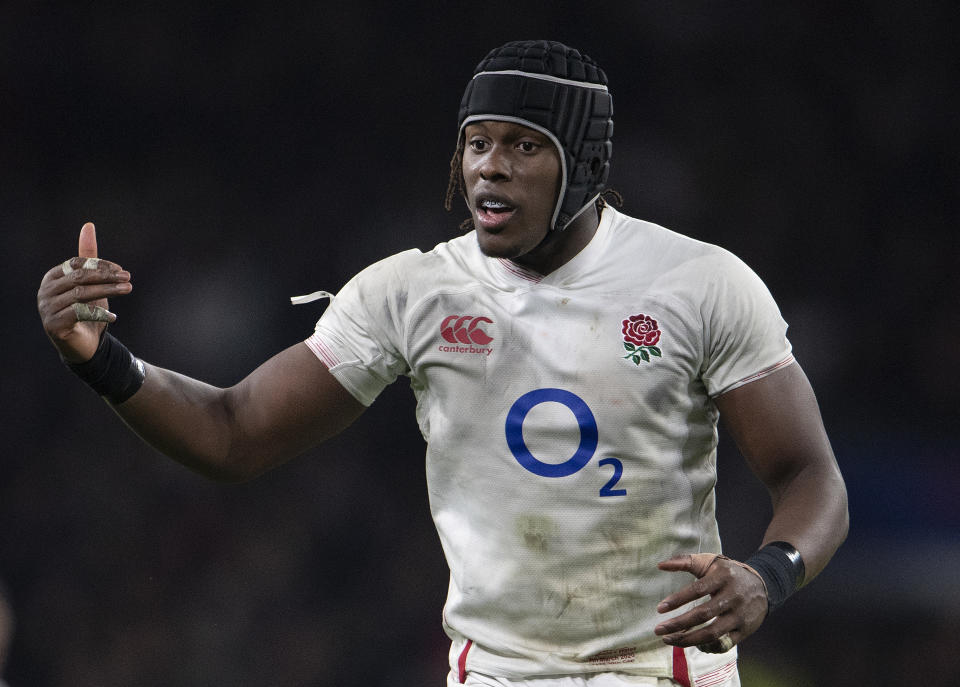England rugby players insist 'Swing Low' anthem should not be banned

Ex-England players say fans should not be prevented from singing their anthem ‘Swing Low, Sweet Chariot’ despite its historical links to slavery.
The sport’s governing body, the RFU, is conducting a review into the song and its use by supporters given the shaper focus brought about by the Black Lives Matter movement following the death of George Floyd in the US.
An RFU spokesperson said the organisation must “do more to achieve diversity”. It said it was reviewing the song’s historical context and the RFU’s role in educating fans to make informed decisions.
The song has become synonymous with England rugby fans over the last 40 years, who regularly sing it during matches. More recently it has become a response to New Zealand’s famous haka, with England fans attempting to lift their team during the All Black’s battlecry.

Maggie Alphonsi, who has won 74 caps and a World Cup with England, is currently the only black person on the RFU’s 55-person council. She told Yahoo News UK: “I wouldn’t tell people to stop singing it, because you have to educate people and let them decide for themselves. I personally don't think it should be banned but I think the RFU are right to conduct a review.
“I’m not sure how old I was, but a teammate told me about the song after a game we had played. It wasn’t a huge moment for me, but got me thinking afterwards. I used to sing it all the time as a player and a fan, but after that I stopped because it didn’t sit right with me.
“My only regret was that no one had told me about it earlier.”
She added: “That’s the wider issue; education. Teach people about the song, about slavery, about our country’s colonial past and let them form their opinions based on all the facts.”
“I don’t want smaller things to distract from the actual agenda. I want to get more people from BAME backgrounds in the sport. More diversity and inclusion in influential to be in positions of influence. That’s what I’m fighting for.”
Maro Itoje, one of England’s star players, spoke about the anthem on Tuesday. In an interview with the Daily Mail Sport the 25-year-old said: “I don't think anyone at Twickenham is singing it with malicious intent, but the background of that song is complicated. The need is to make rugby more open to all.”

The song is reported to have been written by Wallace Wallis, a slave who lived in in the middle of 19th century.
Professor Horace Clarence Boyer said the song “fits into that group of spirituals that say 'I would rather die than be here’”.
He added: "Instead they sing this, 'Swing low sweet chariot, coming for to carry me home.' Where's home? That's heaven. It's a sad song.”
Many believe that England fans first sang the song in support of black players such as Chris Oti in the late 1980s. This has, however, been dismissed by a number of former players. Ex-England hooker, Brian Moore tweeted: “This was sung in rugby clubs when I was still a colt and well before Martin Offiah and Chris Oti played senior rugby.”
He added: “The world has moved on and, rightly, things that were normal then should not necessarily be normal now.”
About Swing Low, Sweet Chariot -
1. This was sung in rugby clubs when I was still a colt and well before Martin Offiah and Chris Oti played senior rugby.
2. It was sung because of the rude gestures that went with it and without any thought of its origins.— Brian Moore (@brianmoore666) June 18, 2020
Former England rugby star Martin Offiah also backed the RFU’s move. "I wouldn't support banning the song. That makes the song more divisive,” he told the BBC.
“I was proud to be associated with the song but I think now is the time to educate fans about the song. It’s better if this review leads the RFU to address decisions about diversity.”
The RFU recently signed a statement pledging to commit to tackling inequality within its sport. It said: “The appalling death of George Floyd, the global protests that have followed and the powerful message of the Black Lives Matter movement has made every section of society take notice and confront an ugly truth.”
The governing body has never had a black person on its 14-person board. RFU chief executive Bill Sweeney said: “We have undertaken some very good initiatives at the grassroots level to encourage more diverse participation however, that in itself is not enough.
“We need to do more to achieve diversity across all areas of the game including administration.”

 Yahoo News
Yahoo News 
